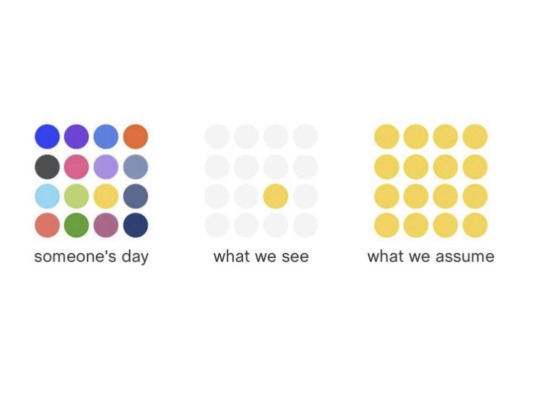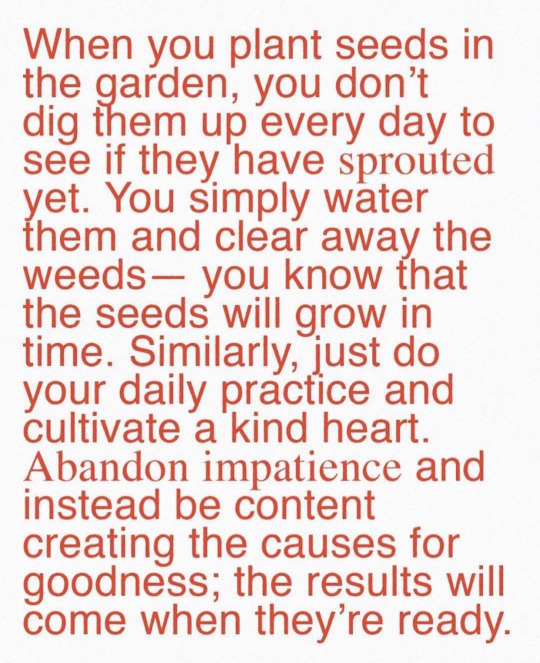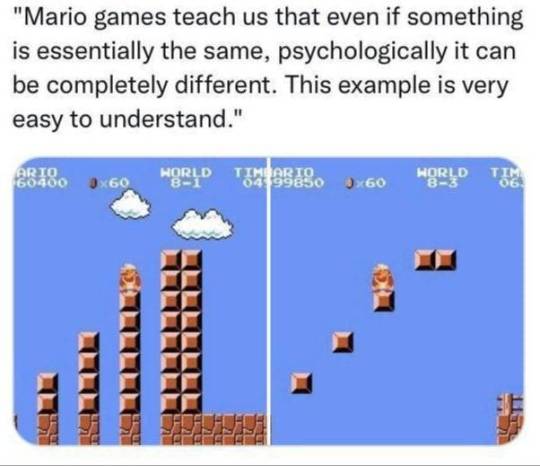Text
A guide to getting away with lies.
I'm no expert, but here's my tips for anyone looking to lie and not get caught.
=-=-=-=-=-=
[Step one]: Paint yourself as trustworthy, innocent, a neutral party, or an otherwise reliable and unbiased source of information. At first, you will actually have to tell the truth. That way, you are proven truthful again and again by the evidence around you and others with little to no effort on your part. If your reason for lying is hiding something, you might think this will ruin your whole plan for hiding the truth, but it won't. Tell small truths, things you don't care too much about or that aren't that important. Once people know you're honest in the little things, you can take advantage of that trust and use that to lie successfully about bigger things later.
[Step two]: Don't act differently. Once you've gained the trust of whoever you want to trick, you can begin to tell lies, but, and I cannot emphasize this enough, don't act differently. At this point, they definitely know what your typical behavior is like, so if you suddenly start to act differently when lying, they will notice. A way to hide a lie is to make your signs of nervousness seem normal upon meeting. You fidget when you're lying? Make your first impression showcase that you naturally fidget and/or are restless in general. That will ease suspicion when you act this way later.
[Step three]: Take any necessary precautions and be knowledgeable regarding your lie. What exactly are you lying about? Who else knows about it? How believable is the lie itself? Try not to lie about it around people who know the truth, and don't tell the lie to anyone who frequently talks with someone who knows the truth. They might hear the true information and call out your lie. Depending on how many people you're telling this lie, you may have to hold up a facade of some type around them. If you only lie to a few individuals, it will be much easier to gaslight them to believe your lie (though I wouldn't recommend that.)
[Step four]: Always have a backup plan. Have "arguments" that are well thought out and believable in case there's a flaw in your lie. You could make the lie more broad and ambiguous so that it becomes more of a debated rumor, or you could have the details down to the tee so everyone believes it as hard fact. What method you use depends on what you're lying about and why. Amend small details if you have to, but never too much. Once you have a lie you need to stick to it and play the part. Contradictions are the first and easiest to spot signs of a lie, so your lie should be carefully planned in advance.
[Lie delivery tips]. Don't make your lie stand out, make it subtle and blend in with all the other facts. If something false is buried in a collection of truths, it will much more likely be believed, and will be easier to hide.
I know I've said this before, but act natural depending on whatever setting you're in. If you present it in a confident yet casual way, it will most likely be believed without question. If something looks natural or like it fits in, people usually don't question it, and the same goes with lies. If it fits in with normal conversation and accepted facts, it will most likely not be questioned or looked into further.
=-=-=-=-=-=
And there you have it, a detailed guide to lying from someone who's been getting away with massive lies for years. I'm just a random guy though, please don't take this seriously, I just wrote this for fun because I was bored and because I'm interested in psychology. I wrote this extremely late at night, I apologize for any grammatical errors. Do with this knowledge what you will, but I'm not responsible for any crazy shit you guys pull off with this knowledge lol.
0 notes
Text
why neuroscience is cool
space & the brain are like the two final frontiers
we know just enough to know we know nothing
there are radically new theories all. the. time. and even just in my research assistant work i've been able to meet with, talk to, and work with the people making them
it's such a philosophical science
potential to do a lot of good in fighting neurological diseases
things like BCI (brain computer interface) and OI (organoid intelligence) are soooooo new and anyone's game - motivation to study hard and be successful so i can take back my field from elon musk
machine learning is going to rapidly increase neuroscience progress i promise you. we get so caught up in AI stealing jobs but yes please steal my job of manually analyzing fMRI scans please i would much prefer to work on the science PLUS computational simulations will soon >>> animal testing to make all drug testing safer and more ethical !! we love ethical AI <3
collab with...everyone under the sun - psychologists, philosophers, ethicists, physicists, molecular biologists, chemists, drug development, machine learning, traditional computing, business, history, education, literally try to name a field we don't work with
it's the brain eeeeee
#This is sick af tho#You wonder why I'm interested in the brain and psychology there it is#science#neuroscience#psychology#brain#motivation#positivity#cognitive science
972 notes
·
View notes
Text

34K notes
·
View notes
Text
Nothing other people do is because of you. It is because of themselves. All people live in their own dream, in their own mind; they are in a completely different world from the one we live in. When we take something personally, we make the assumption that they know what is in our world, and we try to impose our world on their world.
Don Miguel Ruiz
2K notes
·
View notes
Text
I talk to many people who say things like "oh I have trauma but I don't have PTSD", but then when I talk to them a little more I realize that they most likely do, they just can't recognize it as such due to how lacking PTSD awareness is, even beyond the whole "it's not just a veteran's disorder" thing.
The main reason they think they don't have PTSD usually has to do with flashbacks and nightmares, either they have one but not the other or have neither. But here's the thing, those are only two symptoms out of the 23-odd recognized symptoms. Flashbacks and nightmares are two of the five symptoms under Criterion B (Intrusion), which you only need one of for a diagnosis. The other three symptoms are unwanted upsetting memories, emotional distress after being reminded of trauma and physical reactivity after being reminded of trauma (i.e. shaking, sweating, heart racing, feeling sick, nauseous or faint, etc). Therefore you can have both flashbacks and nightmares, one but not the other, or neither and still have PTSD.
In fact, a lot of the reasons people give me for why they don't think they have PTSD are literally a part of the diagnostic criteria.
"Oh, I can barely remember most parts of my trauma anyway." Criterion D (Negative Alterations in Cognition and Mood) includes inability to recall key features of the trauma.
"Oh but I don't get upset about my trauma that often because I avoid thinking of it or being around things that remind me of it most of the time." Criterion C (Avoidance) includes avoiding trauma-related thoughts or feelings and avoiding trauma-related external reminders, and you literally cannot get diagnosed if you don't have at least one of those two symptoms.
"Oh I just have trouble getting to sleep or staying asleep, but I don't have nightmares." Criterion E (Alterations in Arousal and Reactivity) includes difficulting sleeping outside of nightmares.
"But I didn't have many/any trauma symptoms until a long time after the trauma happened." There's literally an entire specification for that.
Really it just shows how despite being one of the most well-known mental illnesses, people really don't know much about PTSD. If you have trauma, I ask you to at least look at the criteria before you decide you don't have PTSD. Hell, even if you don't have trauma, look at the criteria anyway because there are so many symptoms in there that just are not talked about.
PTSD awareness is not just about flashbacks and nightmares.
47K notes
·
View notes
Text
On friendships
Just writing my thoughts about friendships, since it's been on my mind recently. This post will probably be long. I'm no professional in the subject, these are just my thoughts, no more, but no less.
=-=-=-=-=-=
The obvious question at this point would be "What is a good friendship?" or "What's the difference between a good and a bad friendship?" The answer isn't as simple as you'd think.
It's important to note that there is no one good kind of friendship, or one way a friendship can look. There are infinite kinds of friendship, each made unique by the individuals in that friendship. So, while I cannot paint an exact picture of "the perfect friendship", I'll list a few things I believe are necessary to healthy and happy friendships.
🍃Everyone in the friendship should feel safe. This may be a more unconscious or difficult to understand aspect, but it is important. Your gut and instincts can often pick up on things your conscious cannot, so if you feel uneasy or unsafe around someone, this could hint at an underlying issue. These feelings can come from many different things, all of them varying in severity and importance, so it's important to analyze the situation and individual specifically before jumping to conclusions. Make sure to take your gut feelings into consideration, but make sure they don't make you paranoid or control you.
🍃Communication should be uninhibited. This ties into the two other aspects of feeling safe to do so in the first place, as mentioned above, and having respect and good boundaries, which I will cover shortly. Friends should allow you to speak your mind. If they mock, shame, or otherwise ridicule you for opening up, that is a sign of toxic or inattentive people.
🍃Your friends should have respect for you, and you should for them. This includes having established boundaries that everyone is comfortable with and goes along with. This is self explanatory.
🍃You and your friends should be kind to one another. This seems obvious, but I can't tell you how often I see people stick around with people who treat them like absolute shit. What this kindness looks like will vary from person to person, since everyone shows affection and appreciation differently, and some more openly than others. Some friends also tease or act unkind as a joke, which is fine, as long as it doesn't hurt anyone and is made clear to be a joke alone. A large part of this will include learning about your friend's individual personality, how they give and receive kindness or affection. This also comes into play with boundaries, as finding ways and times when your friend will feel comfortable showing and receiving affection is extremely important. Make sure to experiment and discover what ways you like spreading kindness as well, it is healthy to learn more about yourself and in what ways you're comfortable expressing positive emotions.
=-=-=-=-=-=
That's all I can think of for now, but I may expand on this later. Thanks for reading my rambles :)
#psychology#rambles#random thoughts#friendship#communication#boundaries#mental health#geolikespsychology
0 notes
Text
🍃 Ayy another sideblog. Welcome to my psychology sideblog! Here I'll just be info dumping and sharing any thoughts I have on psychology (and maybe philosophy too). I'm no professional, just a kid on the internet, so don't take anything I say as fact, just my ideas and opinions. If you're interested in something I talk about, I'd recommend looking it up for more accurate info. If you find anything I say interesting, feel free to interact, add your own ideas, or correct me if I'm wrong. I always accept constructive criticism on my ideas and theories as long as you're respectful about it.
🍃My aliases are Geo, Mellow, or Mello, and I use he/him pronouns
🍃Posts made by me on this blog will have the #geolikespsychology
🍃Any NSFW blogs don't interact, you'll be immediately blocked.
🍃My main is @mellow-geo if you care.
🍃Thanks for stopping by, I hope you have a wonderful day. Idk what else to say so bye.
#Psychology#Philosophy#Ideas#Theories#Ramblings#Info dump#Random thoughts#Thought journal??#new to tumblr#Introductory post#blog intro#introduction#geolikespsychology
0 notes

